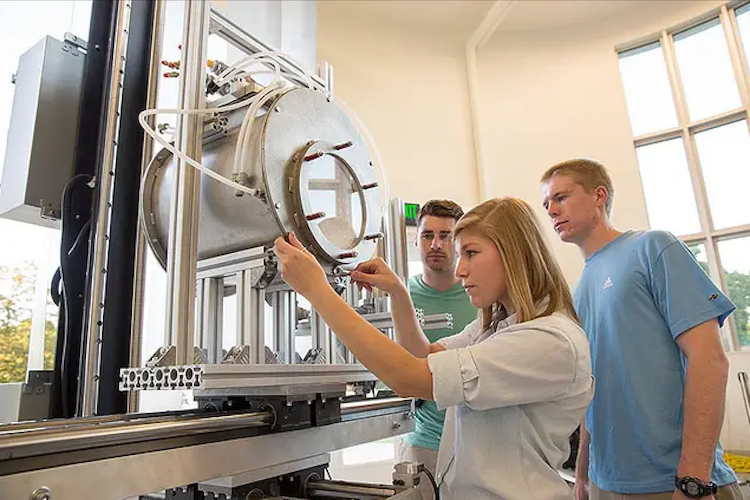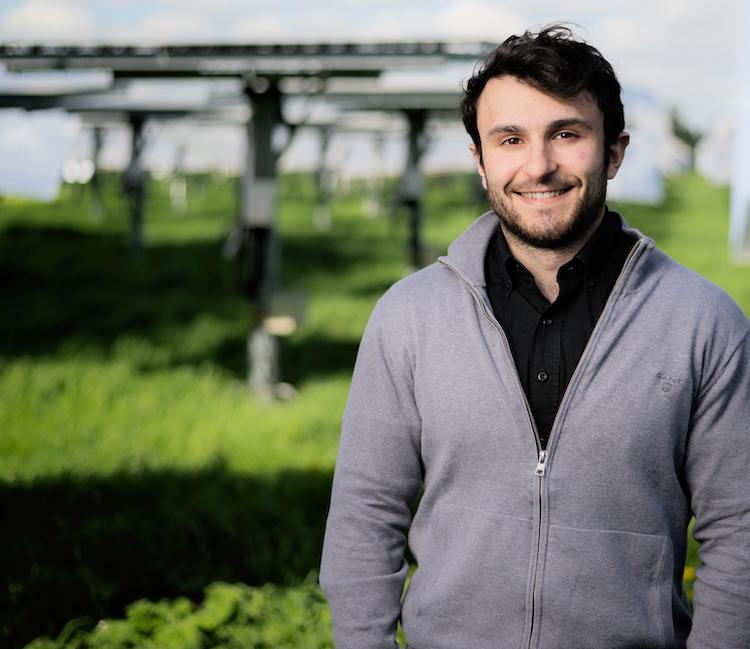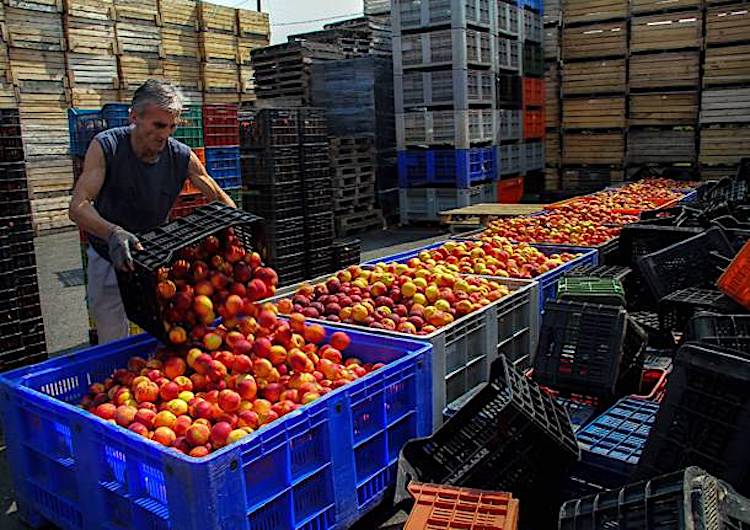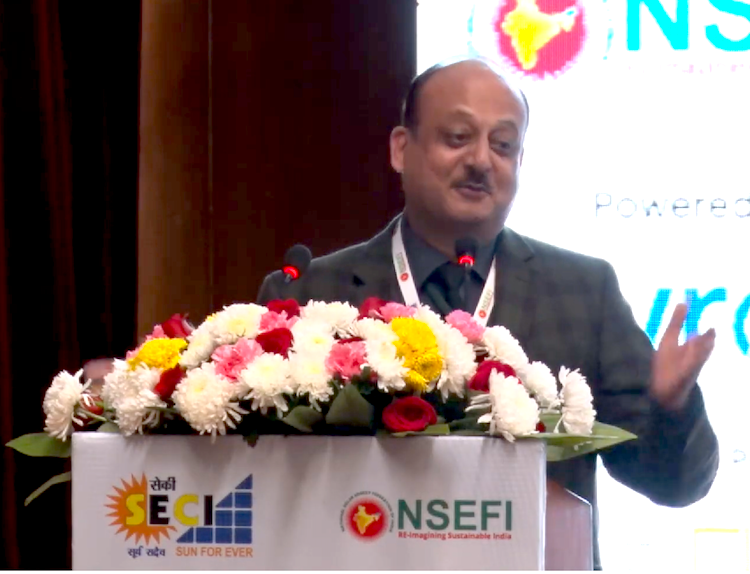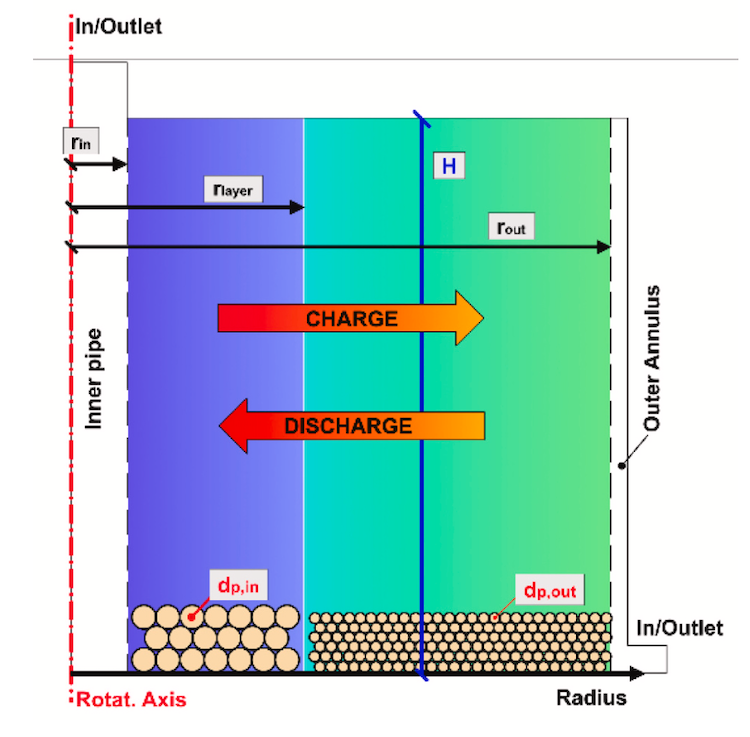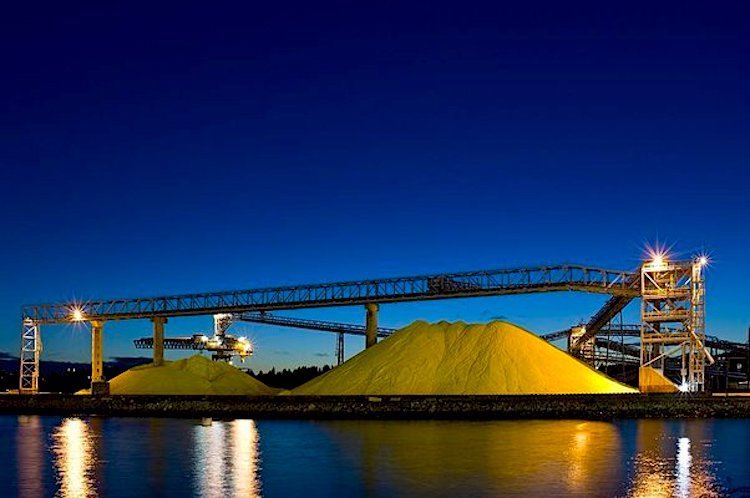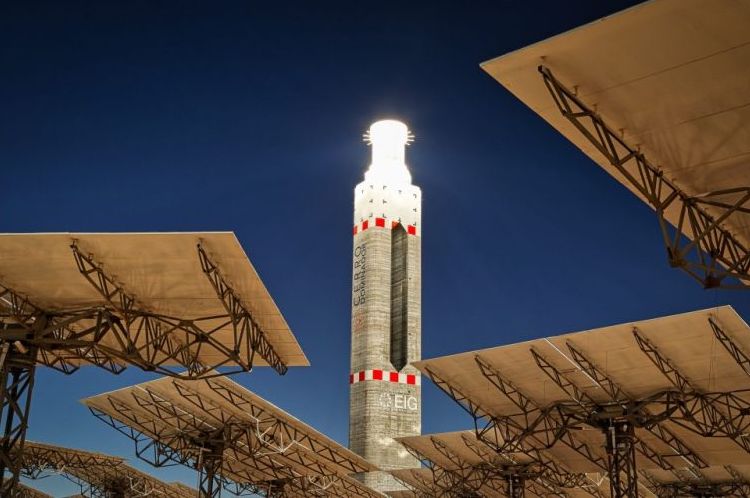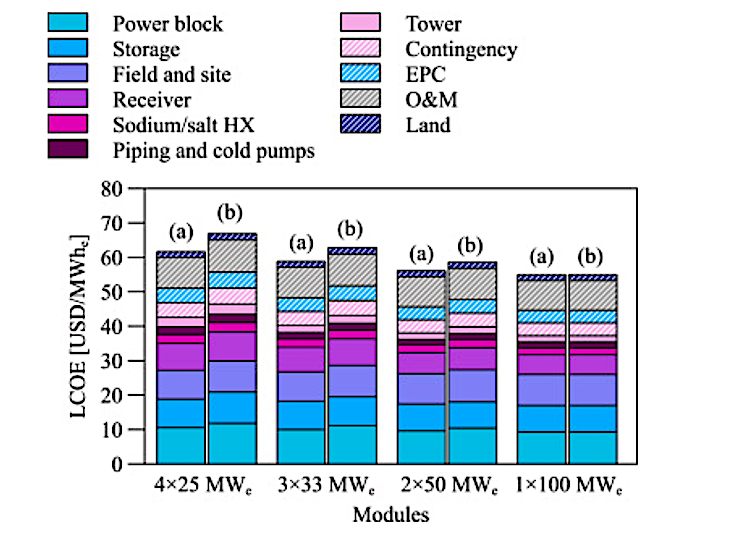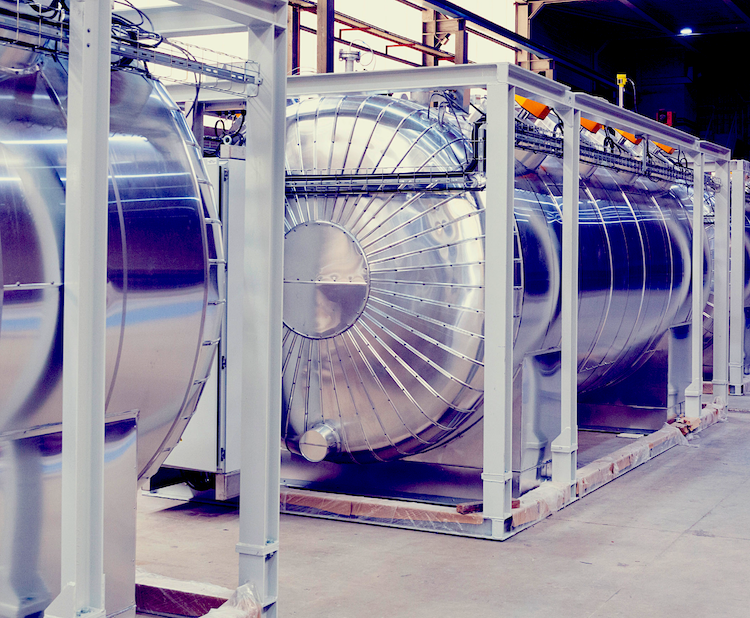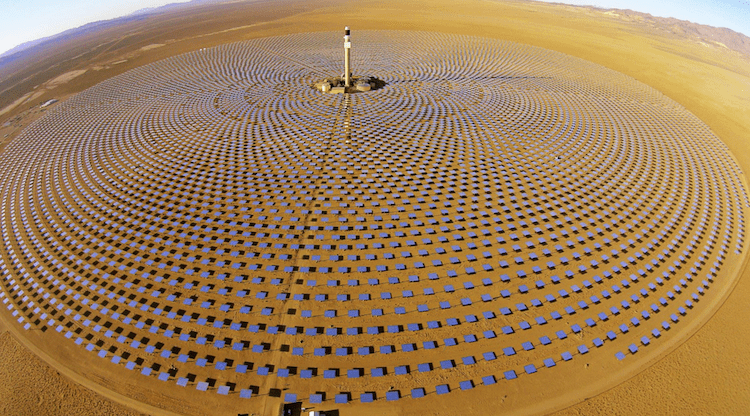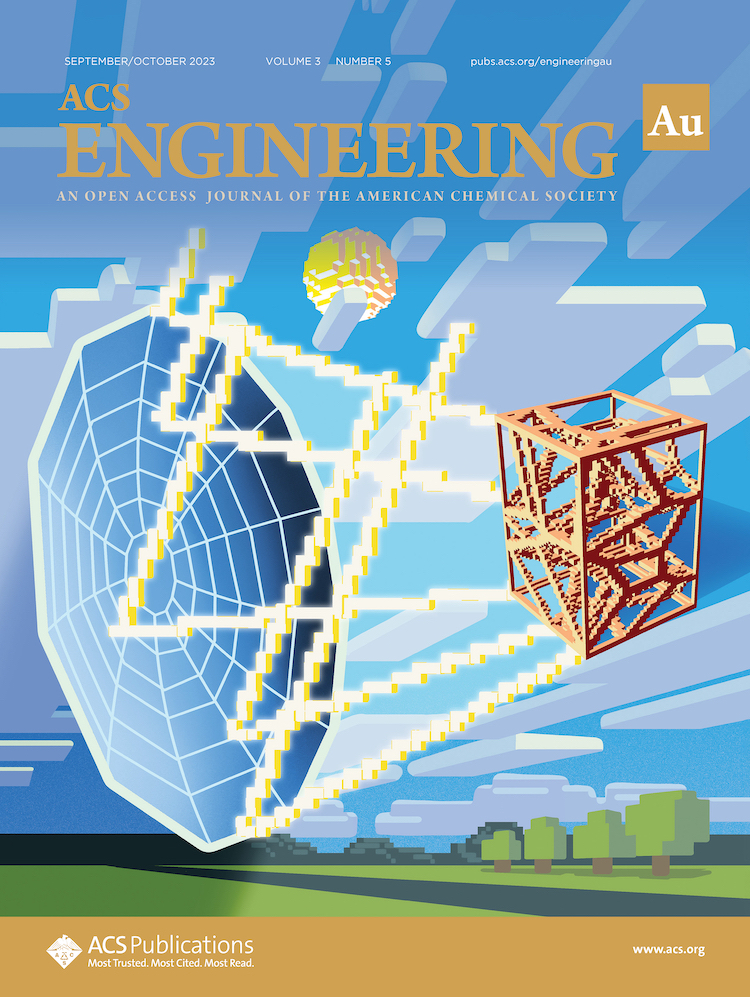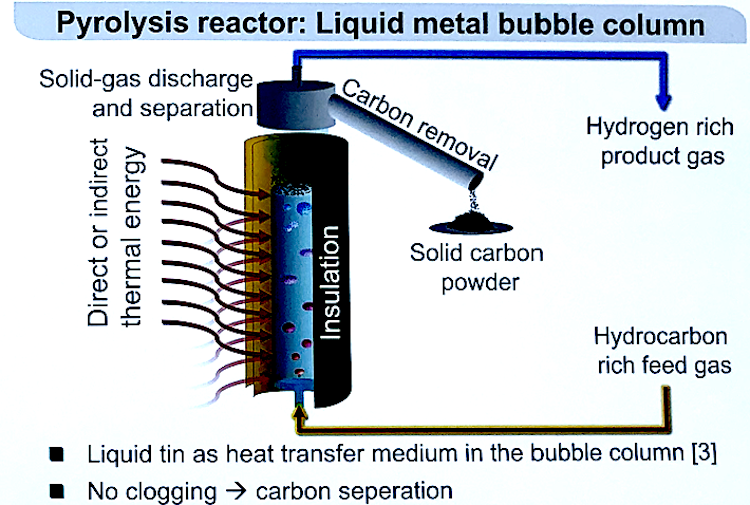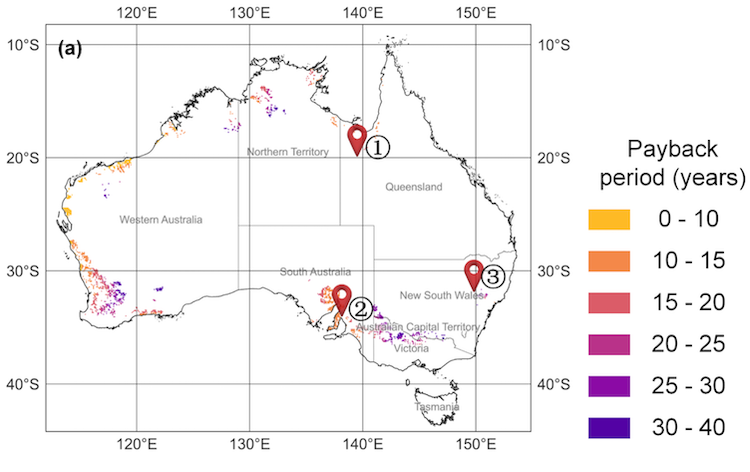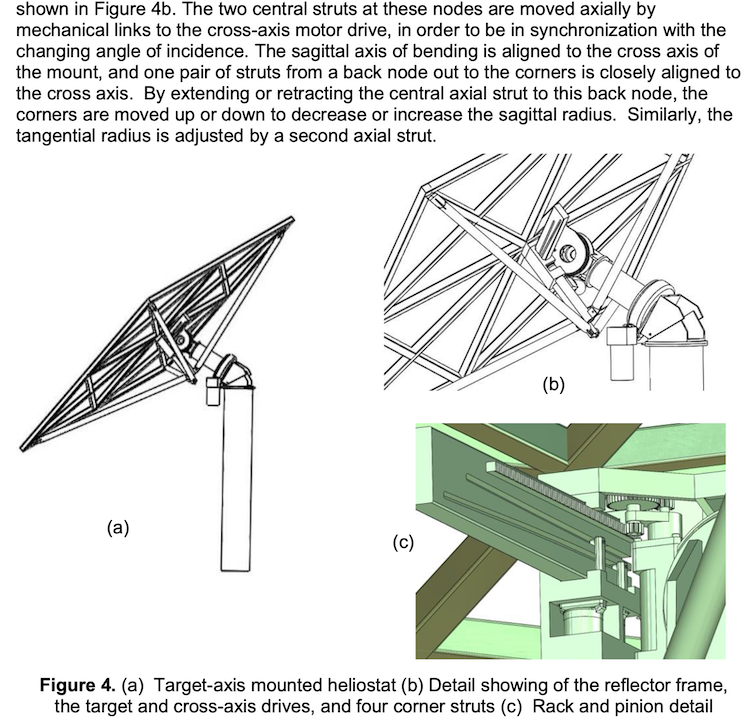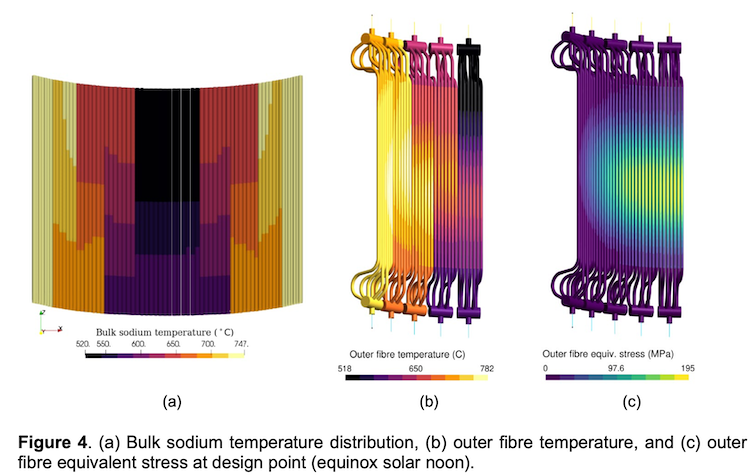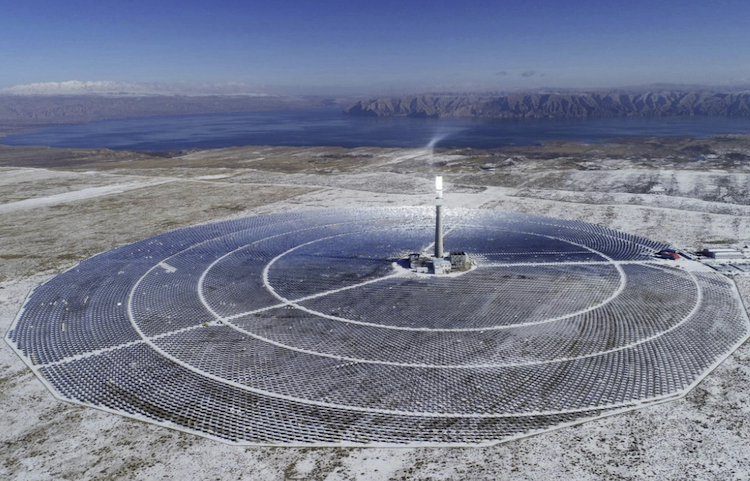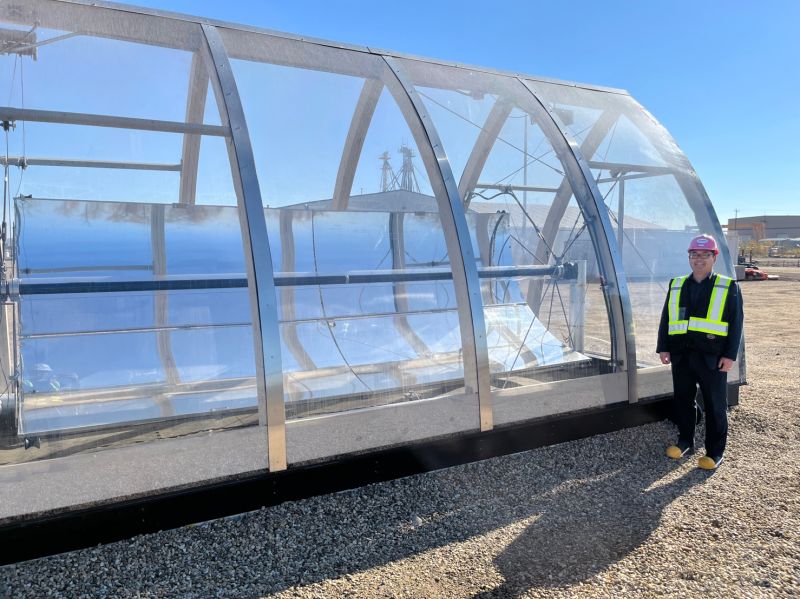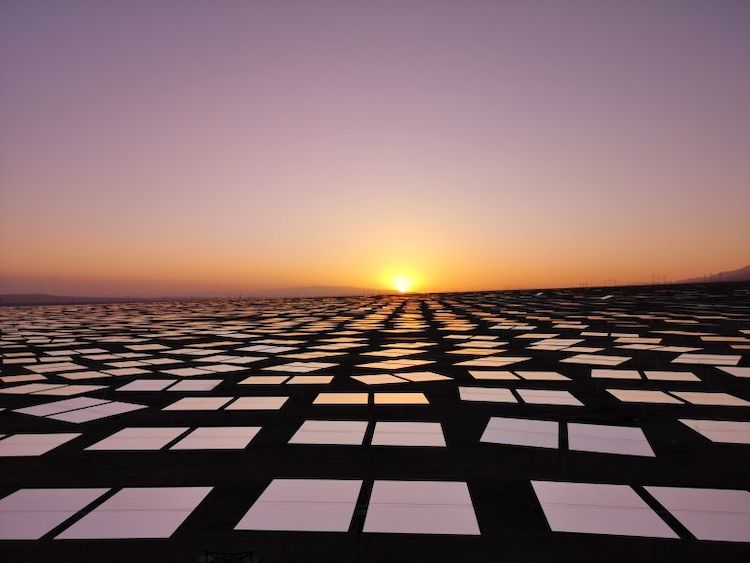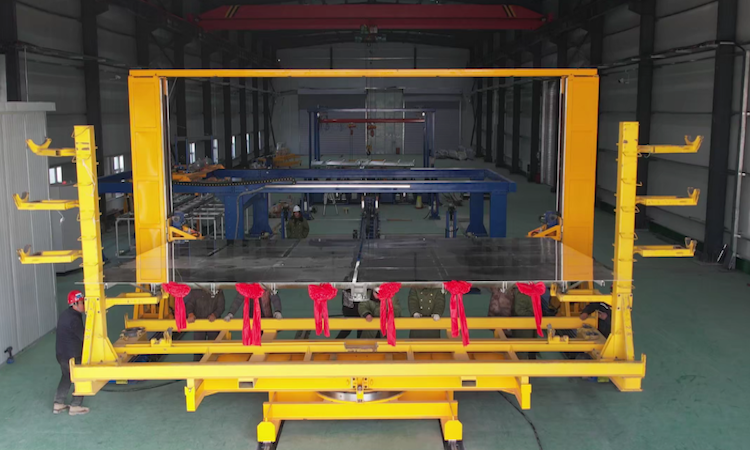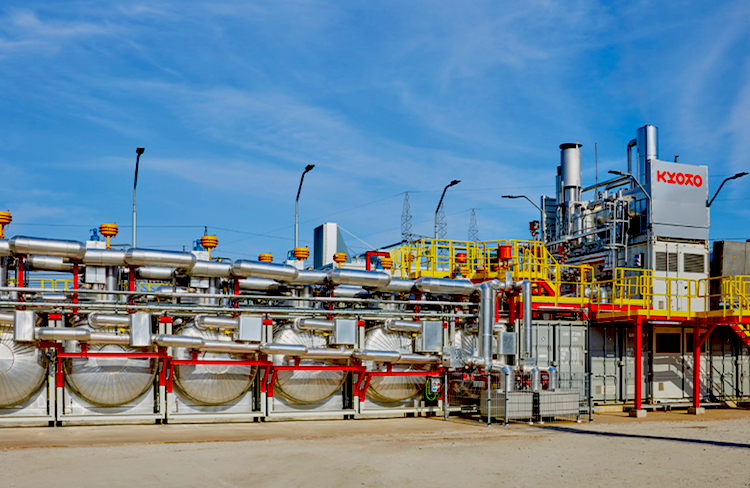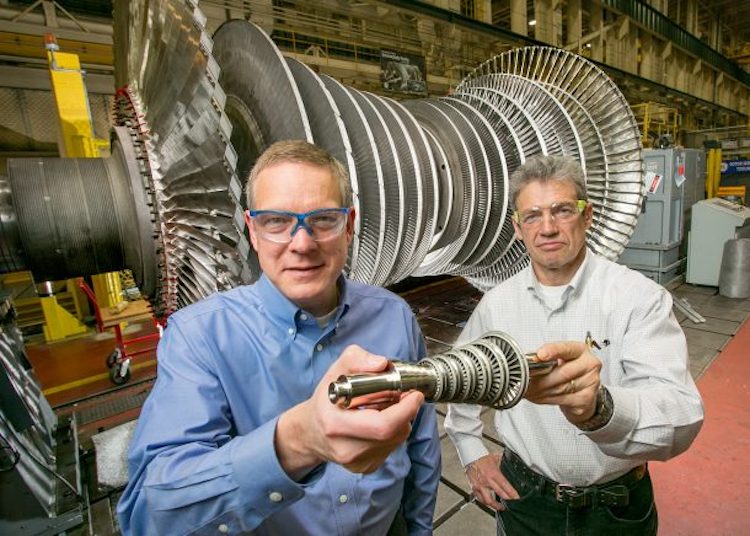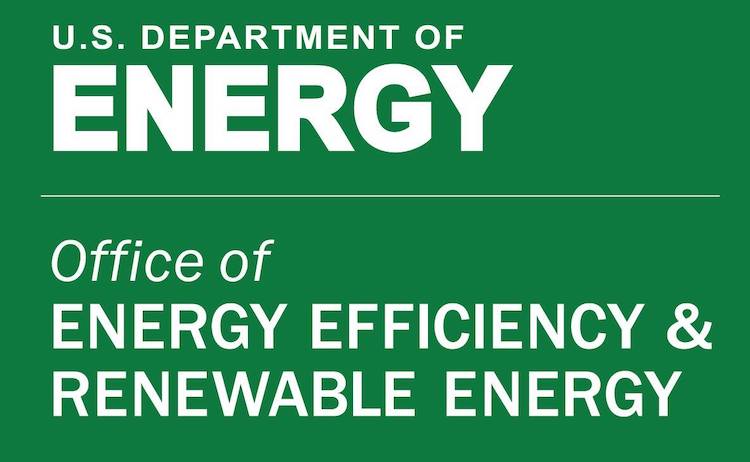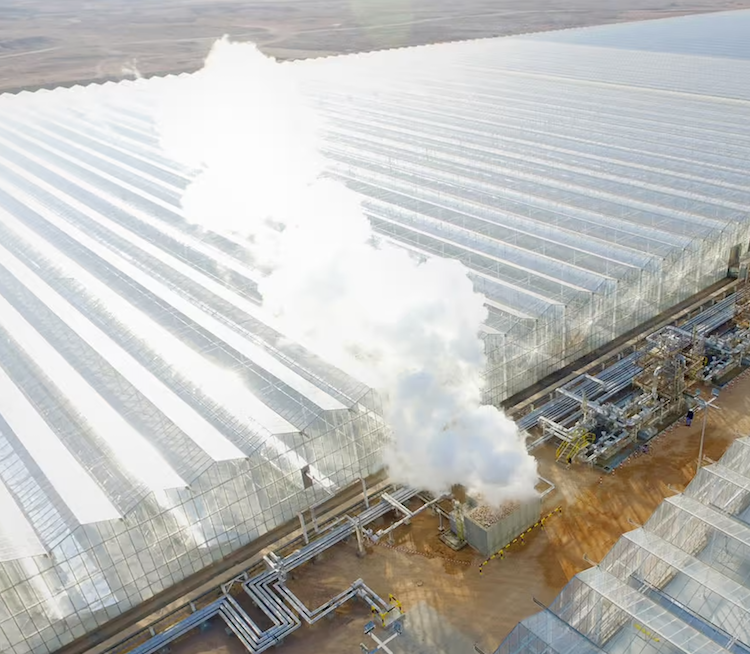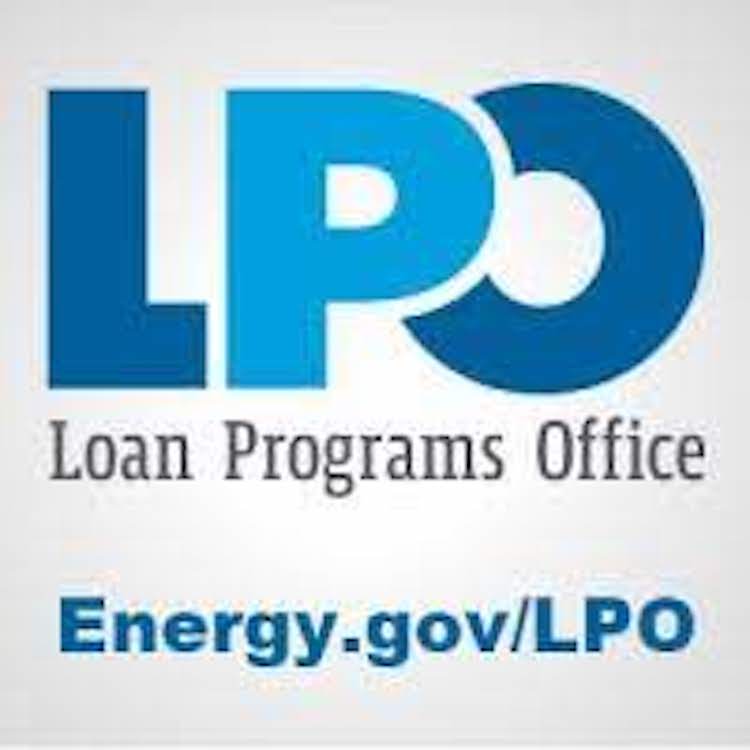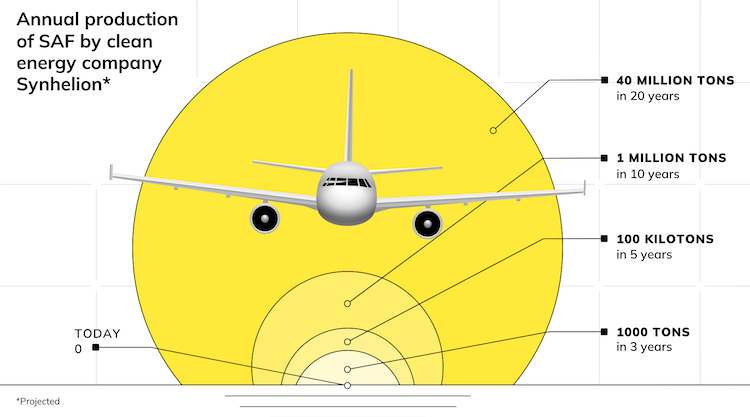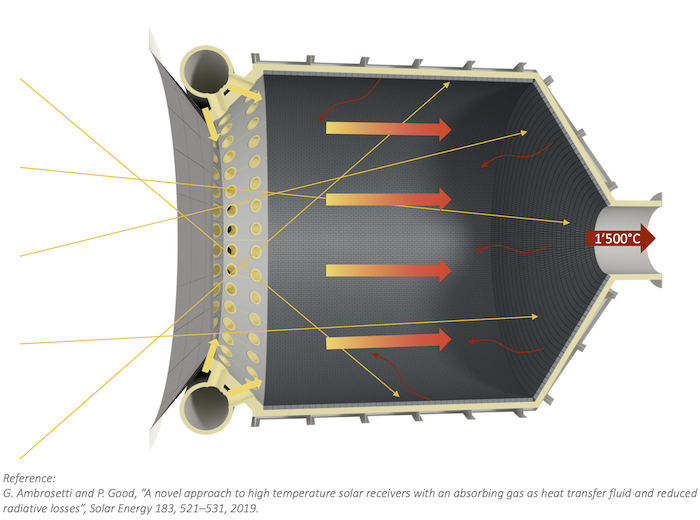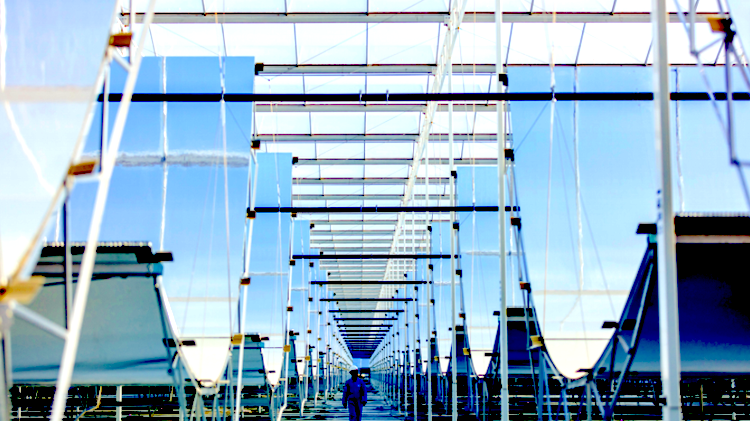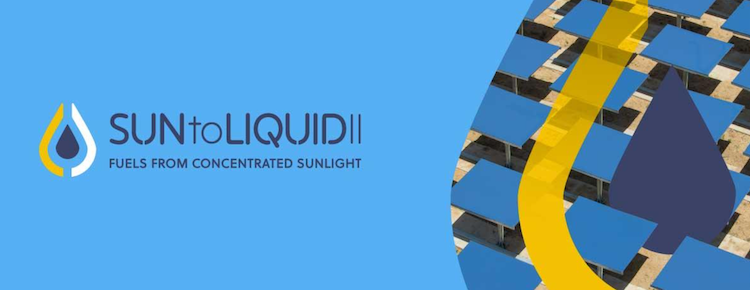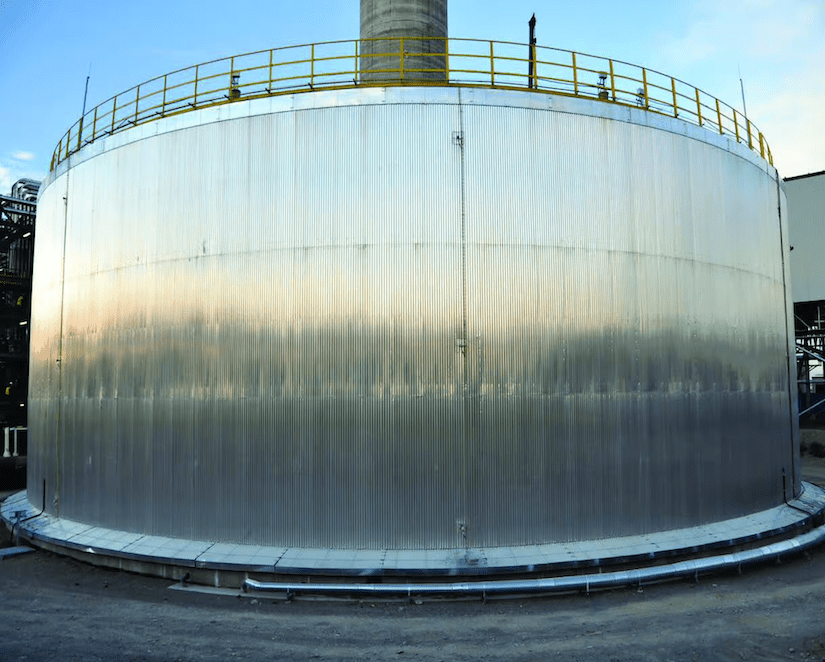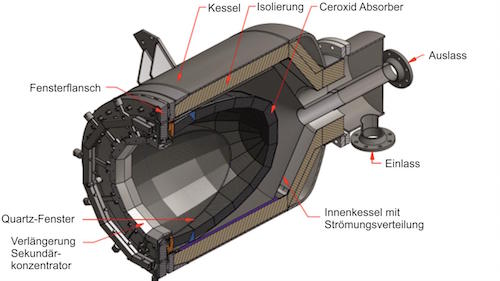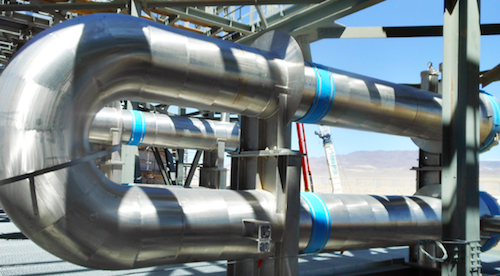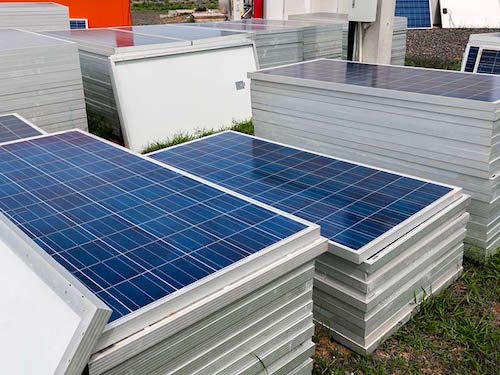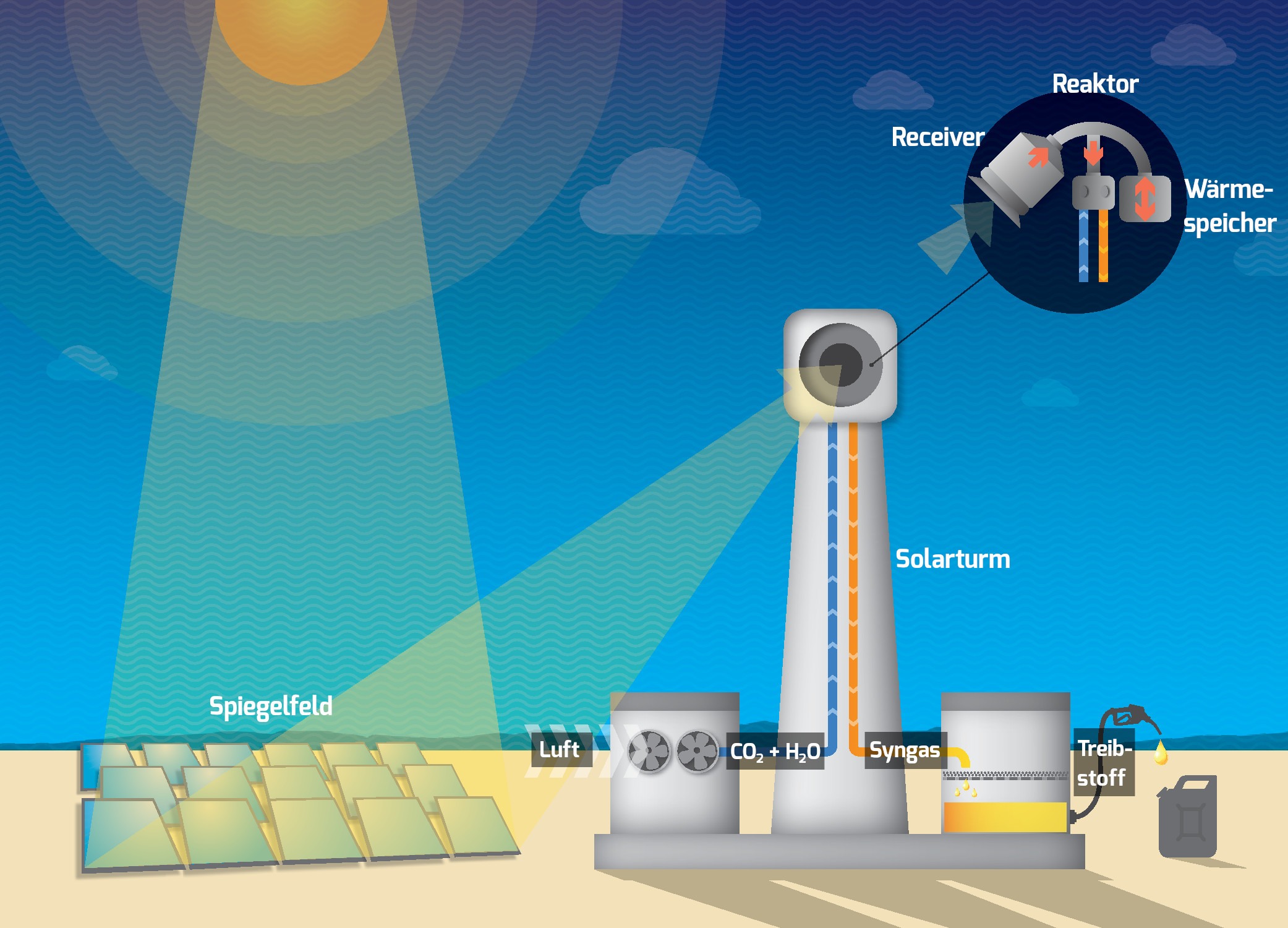
Synhelion is researching and developing technology to produce synthetic gas from air and sunlight. This can be processed into fuel that can be burned in standard engines IMAGE@Synhelion
Flughafen Zürich AG commits to ETH spin-off Synhelion for CO2 reduction
Flughafen Zürich AG aims to cut its CO2 emissions to zero net by 2050. The coronavirus has done nothing to change this plan. That is why the company has just entered into a partnership with the young high-tech enterprise Synhelion SA to support research and development work on synthetic fuels over the long term.
The goal is to make these fuels available in sufficient quantities at market prices. The synthetic fuels from Synhelion’s test facility will be used by Flughafen Zürich AG directly at the airport.
As a signatory of the Paris Climate Agreement, Switzerland undertakes to halve its greenhouse gas emissions by 2030 compared with the 1990 level. Having almost met this goal already, Flughafen Zürich AG is setting even higher targets for itself. By 2050, CO2 emissions for the entire airport infrastructure should be at zero.
In order to achieve this objective – in spite of the current difficult economic times due to the corona pandemic – the company has entered into a partnership with Synhelion. Founded in 2016, the ETH Zurich spin-off has a successful track record in the development of synthetic fuels.
Major potential, thanks to Swiss development
Synhelion is researching and developing technology to produce synthetic gas from air and sunlight. This can be processed into fuel that can be burned in standard engines. During production, the fuel binds CO2 from the air and so is emission-free, setting it apart from fossil fuels.
One challenge still facing this promising technology is the production of large volumes of synthetic fuel. Synhelion is planning a new test facility in Switzerland to explore this task. The test operation is expected to yield synthetic fuel from as early as around 2023.
Flughafen Zürich AG to buy Synhelion’s first total annual supply of solar fuel
The recently signed declaration of intent is a commitment by Flughafen Zürich AG to buy from Synhelion at cost price the entire available annual volume of sustainable fuel produced in the test facility. During the test phase this will be considerably higher than the price of fossil fuel.
“We will use the sustainable fuel in our own vehicles and machines. This will bring us closer to achieving our climate targets,” remarks Emanuel Fleuti, Head of Environmental Protection at Flughafen Zürich AG. Despite the increased use of alternative technologies such as electric vehicles, combustion engines will still also be employed in future for airport infrastructure operations.
In being prepared to pay well above the market price for fuel, Flughafen Zürich AG is supporting Synhelion’s activities, which in turn will help make synthetic fuel available in larger quantities soon and put it on a competitive price footing with fossil fuels over the medium term.
“The partnership with Synhelion is a huge win for us. It puts us at the forefront when new ecologically compatible technologies are developed. That said, we want to do more than just operate the airport as a CO2-free infrastructure. We also aim to play a part in speeding up the process of replacing fossil fuels in aviation to make flying more climate-friendly in future. It’s not flying as such that is responsible for CO2 emissions, but fossil fuels,” points out Emanuel Fleuti.
Replacing up to 100 percent of fossil kerosene
Synhelion’s technology for the production of synthetic fuels will play a key role in the air travel sector when it comes to the replacement of conventional kerosene by sustainable aviation fuels (SAFs). For today’s SAFs, which are produced largely from recycled edible oil and slaughterhouse waste, there are still raw materials, but the limits of availability will be reached at some point in the future. If developments such as Synhelion’s mean that one day sufficient quantities of SAFs are available, they can replace up to 100 percent of the fossil kerosene used in aviation.
“This process can be accelerated. Promoting these technologies can increase the supply of synthetic fuels and their marketability,” comments Fleuti. Flughafen Zürich AG is committed to both and is counting on other economic actors as well as politicians to create the necessary conditions, especially in terms of financing, to make climate-friendly aviation a reality as soon as possible. One way that politicians could achieve this is to resolve to extensively ring-fence the income from the planned air ticket levy under the CO2 Act.
Synhelion CTO is Philipp Furler, the Research Task Leader for solar fuels research at SolarPACES; the international network under the IEA TCP of researchers and industry experts for the development and marketing of concentrating solar thermal power systems and solar chemistry technologies.







